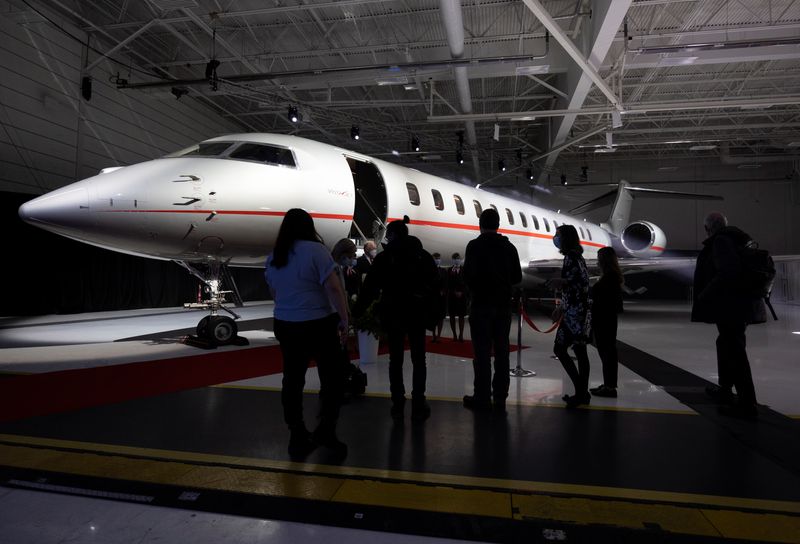By Allison Lampert and Abhijith Ganapavaram
(Reuters) -Business jet maker Bombardier (OTC:BDRBF) Inc on Thursday reported a smaller second-quarter loss and forecast better-than-expected annual free cash flow, helped by strong demand for private flying, but said it faces supply chain pressures.
Montreal-based Bombardier now expects 2022 free cash flow of more than $515 million, compared with its earlier forecast of over $50 million, as orders surge. Analysts, on average, had expected full-year free cash of $181.46 million, according to estimates from Refinitiv.
Business jet makers see strong demand for planes and aftermarket services, as private flying in the key U.S. market remains above pre-pandemic levels and Asia recovers, but supply chain constraints are putting pressure on deliveries.
“We do face, what I would call a crosswind on supply chain,” Chief Executive Eric Martel told a call with analysts.
Shares were up 5% in late morning trading, after jumping 12% earlier in the day.
Bombardier reiterated plans to deliver more than 120 jets this year despite the problems.
“The greater than 120 takes into account some of the risk we have ahead of us mainly driven by engines right now,” Martel said.
He later told reporters the company is working with multiple engine-makers to address "challenges."
Asked about industry chip shortages, Martel said there had been "some impact," such as the delivery of spare parts for the company's services business.
He said Bombardier was taking steps to mitigate supply chain pressure, such as by creating 500 jobs within the company for the work that was previously done by suppliers.
Bombardier's second-quarter free cash flow from continuing operations was $341 million, compared with $91 million, a year earlier.
Bombardier reported improved margins while its backlog rose by 37% on an annual basis to $14.7 billion.
Despite strong demand, there are early signs of a calming market with some brokers reporting a slight uptick in preowned aircraft.
The company's adjusted loss per share narrowed to 48 cents, in line with analysts' expectations, from a loss of $1.49 per share a year earlier.

Revenue rose to $1.56 billion from $1.52 billion for the quarter ended June 30.
The company reported long term debt of $6.28 billion.